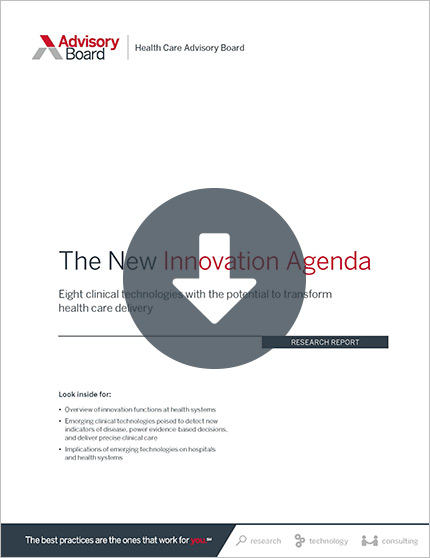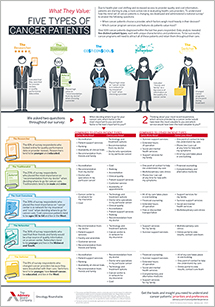Auto logout in seconds.
Continue LogoutAdvances in gene therapy have brought lasting remissions to hundreds of leukemia patients who were nearing death, but a case study published Monday highlights a weakness in the treatment that can cause a rare and fatal relapse.
Oct. 9 webconference: Get up to speed on the latest market trends in oncology
About the treatment
The case study, published in Nature Medicine, focuses on a 20-year-old male patient with B-cell acute lymphoblastic leukemia who about five years ago received a gene therapy designed to use his own immune system to target his leukemia, entered remission, and later died when his cancer resurfaced.
The patient was treated with a version of the CAR-T cell immunotherapy that eventually became known as Novartis' Kymriah. FDA last year approved Kymriah to treat B-cell acute lymphoblastic leukemia in children and adults up to age 25 for whom other treatments did not work. Novartis noted that the patient's treatment was made by researchers at the University of Pennsylvania, and that Novartis' manufacturing process for the treatment is different.
As part of the treatment, clinicians extract and genetically modify a patient's immune system T-cells to attack cancerous B-cells with the CD 19 protein, which acts as a marker on cancer cells, "In the Lab" reports. Clinicians then infuse the T-cells back into the patient's blood, at which point they begin attacking the cancer.
A rare occurrence
The treatment worked as intended in the patient, who doctors said entered remission. But, over time, the researchers noticed that the patient's blood still contained the modified cells, though they were not in the immune system T-cells.
Instead, the doctors discovered a cancerous B-cell had been genetically modified and was resistant to the CAR-T therapy. According to the case study, the modified cancer cell was able to hide as the reengineered T-cells killed off the patient's other leukemia cells, giving the impression the patient was in remission. But over time, the genetically altered leukemia cell multiplied uncontrollably, causing the patient to relapse nine months later. The patient ultimately died from complications from his relapsed leukemia.
What went wrong?
Researchers in the case study explained that the process used to create the gene therapy that ultimately was injected into the patient was an early approach that is different from the one currently used to develop Kymriah.
According to the case study, researchers had extracted cancerous B-cells along with the patient's T-cells, and all of those cells went through the genetic modification process and were injected back into the patient.
Marco Ruella, the case study's lead author and an assistant professor at the University of Pennsylvania's Perelman School of Medicine, explained cancerous cells captured with T-cells generally die or are killed by the modified T-cells, but in this case one cancerous cell survived the genetic modification and was injected back into the patient.
Jos Melenhorst, one of the authors of the case study and an immunology expert at the University of Pennsylvania, noted that advancements have been made in the technology for creating the gene therapy since the patient's death, and those advancements have allowed researchers to improve the development of CAR-T therapies to better ensure that B-cells are not extracted and genetically modified. "We're getting much better at getting a purer starting population" of immune cells, Melenhorst said.
What the findings mean for providers and patients
Researchers have said the case study represents a rare event and there is no evidence to suggest the problem has occurred with T-cells that have been reengineered by Novartis or any other drugmakers or research centers.
Ruella said CAR-T therapies remain one of the best options for patients who have not responded to other therapies. However, he added that the findings suggest CAR-T therapies "warran[t] close monitoring of patients and improvement of the manufacturing process." For instance, Ruella said the findings highlight the importance of examining each patient who receives a CAR-T therapy and relapses to determine why the patient's cancer returned.
Jason Westin, who leads a research team at MD Anderson Cancer Center and was not involved in the case study, said, "We're going to need papers like this one" to understand how cancers become resistant to CAR-T therapies. Still, he said CAR-T therapies are "one of the most exciting things we've seen in cancer in forever." He said, "Having rare theoretical things that actually happen is concerning, but it should in no way temper the potential for the future of CAR-T cells."
Novartis in a statement said the company uses a different manufacturing process than the one used by researchers in the case study, and it is "not aware of any cases of this happening in the more than 400 patients treated with Kymriah" (Grady, New York Times, 10/1; Joseph, "In the Lab," STAT News, 10/1).
Oct. 9 webconference: Get up to speed on the latest oncology market trends
Get a jump start on next year's strategic planning initiatives. Use this webinar to inform your next oncology service line strategy meeting and build a strong foundation for discussion.
Don't miss out on the latest Advisory Board insights
Create your free account to access 1 resource, including the latest research and webinars.
Want access without creating an account?
You have 1 free members-only resource remaining this month.
1 free members-only resources remaining
1 free members-only resources remaining
You've reached your limit of free insights
Become a member to access all of Advisory Board's resources, events, and experts
Never miss out on the latest innovative health care content tailored to you.
Benefits include:
You've reached your limit of free insights
Become a member to access all of Advisory Board's resources, events, and experts
Never miss out on the latest innovative health care content tailored to you.
Benefits include:
This content is available through your Curated Research partnership with Advisory Board. Click on ‘view this resource’ to read the full piece
Email ask@advisory.com to learn more
Click on ‘Become a Member’ to learn about the benefits of a Full-Access partnership with Advisory Board
Never miss out on the latest innovative health care content tailored to you.
Benefits Include:
This is for members only. Learn more.
Click on ‘Become a Member’ to learn about the benefits of a Full-Access partnership with Advisory Board
Never miss out on the latest innovative health care content tailored to you.


